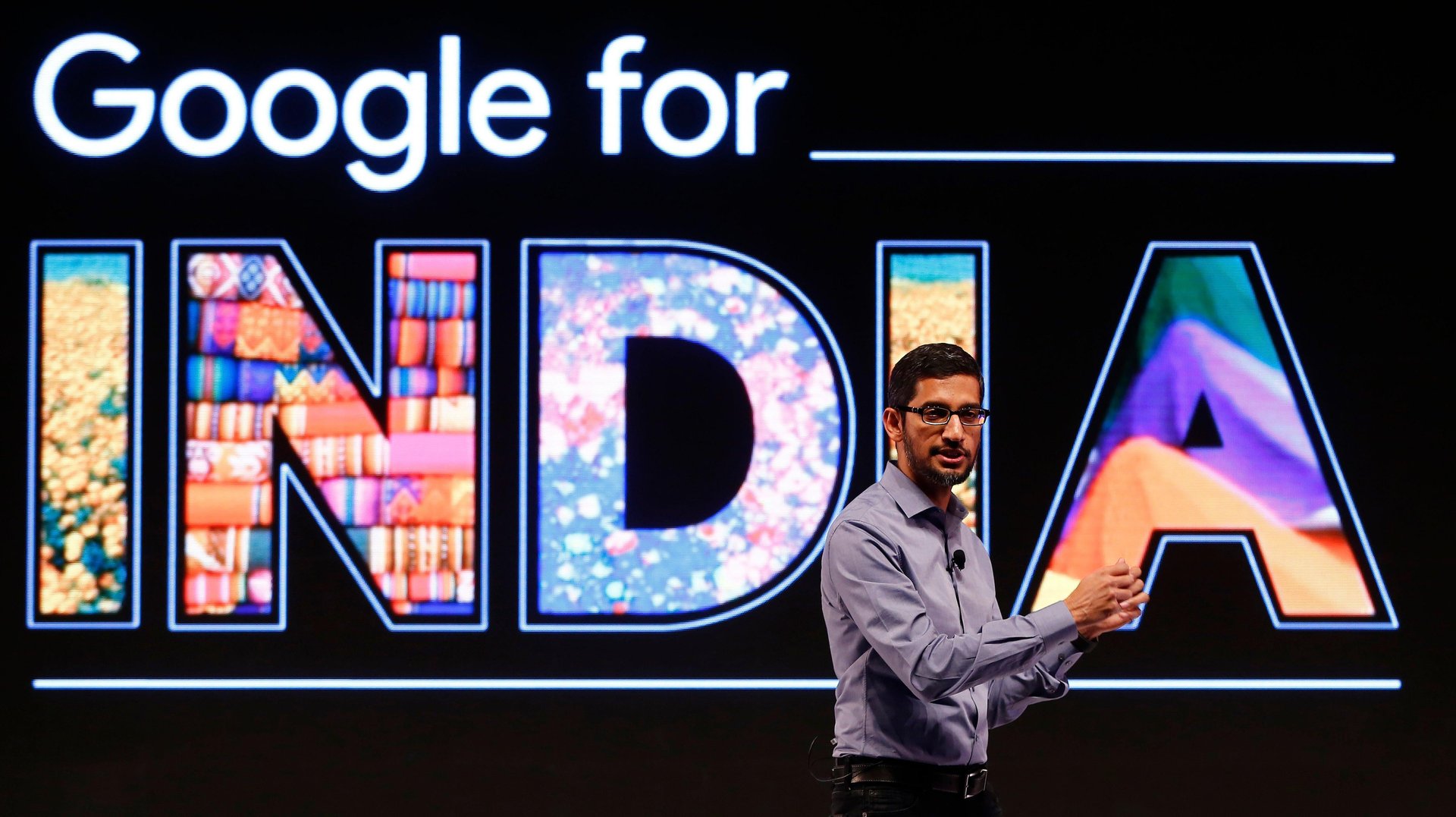India's curbs on Alphabet are a blessing for local payment providers
Google accounts for nearly all of the country’s 600 million internet users

Alphabet’s Google has found itself in a new scuffle over discriminatory practices in India’s digital ecosystem.
The country’s antitrust agency, the Competition Commission of India (CCI), yesterday (Oct. 25) imposed a fine of 936 crore rupees ($113.5 million) on the US-based search giant. Google was also ordered to allow Play Store developers to use alternative payment options for in-app purchases.
As a result, India’s own payment companies—Google Pay rivals such as Paytm, PhonePe, and Pinelabs—now have the opportunity to venture onto Play Store turf and grab a significant share of a huge market. In 2021, in-app purchases in India generated around $600 million in revenue—nearly all of it on Android, Google’s smartphone OS that is dominant in the country.
In recent years, India’s online payments have skyrocketed, thanks to its flagship payments system—Unified Payments Interface (UPI)—which combines seamless funds transfer, merchant payments, and several banking features into a single mobile application. “Google shall not discriminate against other apps facilitating payment through UPI in India vis-à-vis its own UPI app, in any manner,” the CCI order said.
This is second such penalty imposed by CCI on Google this month, in a country that is Google’s largest market by users. Android makes up 97% of the domestic smartphone market, according to a report by Strategy Analytics. Google Pay stands second in terms of usage by transaction volume for UPI payments in India, behind PhonePe.
Why is India penalizing Alphabet?
The two penalties levied this month on Google are the result of a long-drawn-out investigation by the CCI. The investigation, which began in late 2020, examined whether Google is abusing its dominant position to promote its payments service in India.
On Oct. 20, the company was fined Rs 1,337.76 crore for its control over the Android ecosystem. The CCI held that Android developers find it difficult to place their versions of native Android apps on smartphones. Nearly every major smartphone company, such as Samsung or Xiaomi, uses Android, so prominent apps for navigation or browsing come pre-installed on Android devices. There is no option to un-install these apps, which, according to the CCI, undermines fair competition and stifle innovation.
In its most recent order, the CCI argued that Google’s payment policy is similarly unfair. Mandating developers to use Google’s own billing system for paid apps and in-app purchases through the Play Store “constitutes an imposition of unfair condition” and thus violates the law, a CCI statement said.
The CCI’s decision echoes that of the South Korean government, earlier this year, to compel app stores to accept the services of third-party payment providers.
In response, a Google spokesperson said that Indian developers have benefited from the technology, security, consumer protections, and unrivaled choice and flexibility that Android and the Play Store provide.
“By keeping costs low, our model has powered India’s digital transformation and expanded access for hundreds of millions of Indians,” the spokesperson said in a statement.